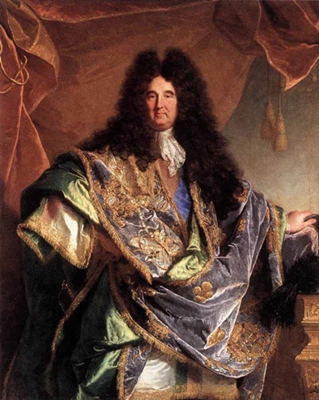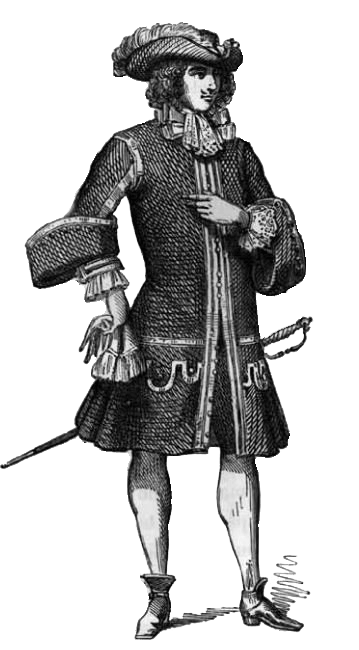Dangeau’s Diary, March 1689

13th. — The Queen of England informed us, that the Prince of Orange has ordered, that in speaking of the King, her consort, and herself, the expression, the late King and the late Queen should be used.
16th. — The King has issued a proclamation, by which he restores to his Huguenot subjects, who have taken refuge in England and Holland, the half of their property, provided they retire into Denmark or Hamburg.
17th. — The Prince of Orange has sent into Holland eight regiments of infantry and five of cavalry. They have arrived in the Meuse, but we know that their whole amount does not exceed three thousand seven hundred men. He cannot avail himself of any of the troops which were in the service of the King of England, as neither privates nor officers would take the new oath. Parliament has granted him the suspension of the Habeas Corpus Act till the 10th of May and he will thus be enabled to imprison all whom he may consider ill affected to the public good, that is, to his own interests.
24th. — The Comte de Béthune carried off this day from a convent in Paris, Mademoiselle de Vaubrun, sister to the Duchesse d’Estrees. They passed the night at the Duc de Gesvres’. The Comte affirms that he has been married to her for some time. He demanded his wife from the nuns, who refused to have any thing to do in the business, not acknowledging her as such. He broke open the convent doors, carried her off, and wrote to the King, giving him an account of his proceeding, endeavouring to justify it and urging to his Majesty that he had done nothing against good order, by carrying off a lady who was his lawful wife.
25th. — The King has declared that he would not in the least interfere in the affair of Monsieur de Béthune and that justice should take its course. The Duc de Gesvres has arrived here, in order to justify himself from the accusation of having assisted the Comte de Béthune. He disowns as his guards the persons who assisted in breaking into the parlour of the sisters of Sainte-Marie, where Mademoiselle de Vaubrun was, and has brought with him a letter written with his daughter’s own hand, in which she declares that she is the lawful wife of the Comte de Béthune.
26th. — The Duc de Charost and the lieutenant civil have made a kind of accommodation with Mademoiselle de Vaubrun, by which she has consented to allow the Comte de Béthune twenty-four hours to make his escape and this afternoon the above gentlemen brought back the daughter to her mother, with a written document from the Comte de Béthune, by which he acknowledges that she is not his wife and protests that he has respected her innocence.
27th. — The chief president has been to the Duc d’Estrees, to offer him every kind of satisfaction on the part of the Duc de Gesvres. This the president did without orders. The Duc d’Estrees would not listen to him and is determined to prosecute the Duc de Gesvres, as an accomplice in the abduction. It was from the house of the Duc de Gesvres, that the daughter was taken back to her mother. She had remained there forty-eight hours. The Duc d’Estrees had caused the house to be surrounded ever since Friday morning and Monsieur de Béthune and the lady would have been seized there, but for the accommodation made yesterday by Monsieur de Charost, and the lieutenant civil, the Duc d’Estrees being unwilling to decapitate his uncle after the fashion of Brittany.
30th. — Monsieur le Prince was anxious to accommodate matters between the Duc de Gesvres and the Duc d’Estrees, the latter, however, begged that he would not take it ill if he brought the business be fore a court of justice, feeling, as he said, too much offended, to let even a person of the birth of Monsieur le Prince, be master of his resentment. The Duc de Beauvilliers will, however, endeavour to mollify him. The Duc de Gesvres and the chief president, in his name, are desirous of doing every thing that is reasonable to satisfy Madame de Vaubrun and the Duc d’Estrees.
31st. — The Duc de Beauvilliers has drawn up a writing, to which, after much difficulty, both the Duc d’Estrees and the Duc de Gesvres have consented. By this document, the Duc de Gesvres was to go to the Duc d’Estrees and ask his pardon, but it happened, that the Duc de Gesvres changed something in the writing, which he deemed immaterial, and without giving himself further trouble, he, accompanied by the chief president, proceeded to the house of the Duc d’Estrees. They were kept a long time at the door and also in the anti-chamber. At last a fire was lighted in the room, where, after waiting a considerable time, a person informed them, that the Duc d’Estrees had gone out. So that both parties are more incensed than ever.


